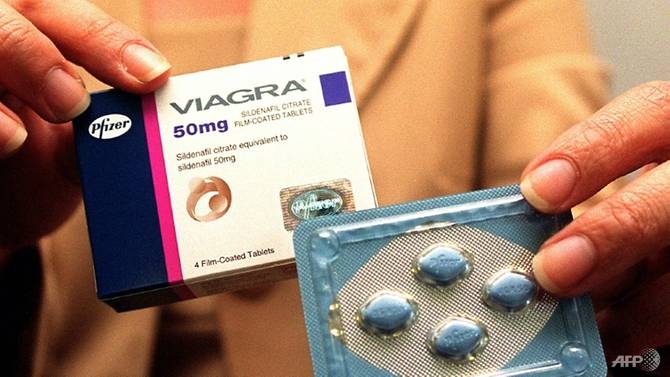Dutch doctors halt Viagra in pregnancy trial after 11 babies die
 |
| Researchers at the Amsterdam University Medical Centre have halted a study into using Viagra to help pregnant women after almost a dozen babies died, and others developed lung disease having been born prematurely. (AFP/ROSLAN RAHMAN) |
Amsterdam University Medical Centre, which carried out the research along with 10 other hospitals in the Netherlands, announced the study had been stopped after the deaths of the babies, and after others developed lung disease having been born prematurely.
Viagra, which is the better known name of the generic drug sildenafil, is more commonly used for men with erectile problems.
But doctors believed that its properties in dilating blood vessels could help promote a better flow of blood into the placenta and "stimulate the growth of the unborn child" whose development had been retarded in the mother's womb, the hospital said in a statement.
The study involving the UMC and 10 other Dutch hospitals was launched in 2015 focusing on women whose babies developed poorly in early pregnancy, the Amsterdam hospital said.
"The prognosis for such babies is poor and there is no known other treatment for the child," it said.
At the moment when the trial was stopped last week, a total of 93 women had been given Viagra to take during their pregnancy, while 90 others were given a placebo.
None of the mothers were affected by the drug.
But out of the 93 women using the drug, 19 babies died, 11 of them possibly due to a form of high blood pressure in the lungs which may be linked to the drug. Six other babies were also born with a lung condition which prevents them from getting enough oxygen, but survived.
Out of the placebo group, nine babies died, none of them from lung disease. Three others were born with a lung condition.
Dutch media reported on Tuesday (Jul 24) that between 10 to 15 other women now faced an agonising wait to see if the drug has affected their as yet unborn child.
Amsterdam gynaecologist Wessel Ganzevoort, who led the study, told the leading Volkskrant daily that Viagra had been seen as a very promising drug to help boost growth in unborn babies.
Patients had even heard about the study and had asked him to prescribe it, he said. So he had been "shocked" at the results of the study.
"We wanted to show that this was effective to promote growth among babies, But the opposite has happened," he told Volkskrant.
"The last thing you want to do is harm patients."
He revealed the results had also been shared with Canadian researchers working on similar trials.
What the stars mean:
★ Poor ★ ★ Promising ★★★ Good ★★★★ Very good ★★★★★ Exceptional
Related Contents
Latest News
More News
- Russian President congratulates Vietnamese Party leader during phone talks (January 25, 2026 | 09:58)
- Worldwide congratulations underscore confidence in Vietnam’s 14th Party Congress (January 23, 2026 | 09:02)
- Political parties, organisations, int’l friends send congratulations to 14th National Party Congress (January 22, 2026 | 09:33)
- 14th National Party Congress: Japanese media highlight Vietnam’s growth targets (January 21, 2026 | 09:46)
- 14th National Party Congress: Driving force for Vietnam to continue renewal, innovation, breakthroughs (January 21, 2026 | 09:42)
- Vietnam remains spiritual support for progressive forces: Colombian party leader (January 21, 2026 | 08:00)
- Int'l media provides large coverage of 14th National Party Congress's first working day (January 20, 2026 | 09:09)
- Vietnamese firms win top honours at ASEAN Digital Awards (January 16, 2026 | 16:45)
- ASEAN Digital Ministers' Meeting opens in Hanoi (January 15, 2026 | 15:33)
- ASEAN economies move up the global chip value chain (December 09, 2025 | 13:32)

 Tag:
Tag:




















 Mobile Version
Mobile Version